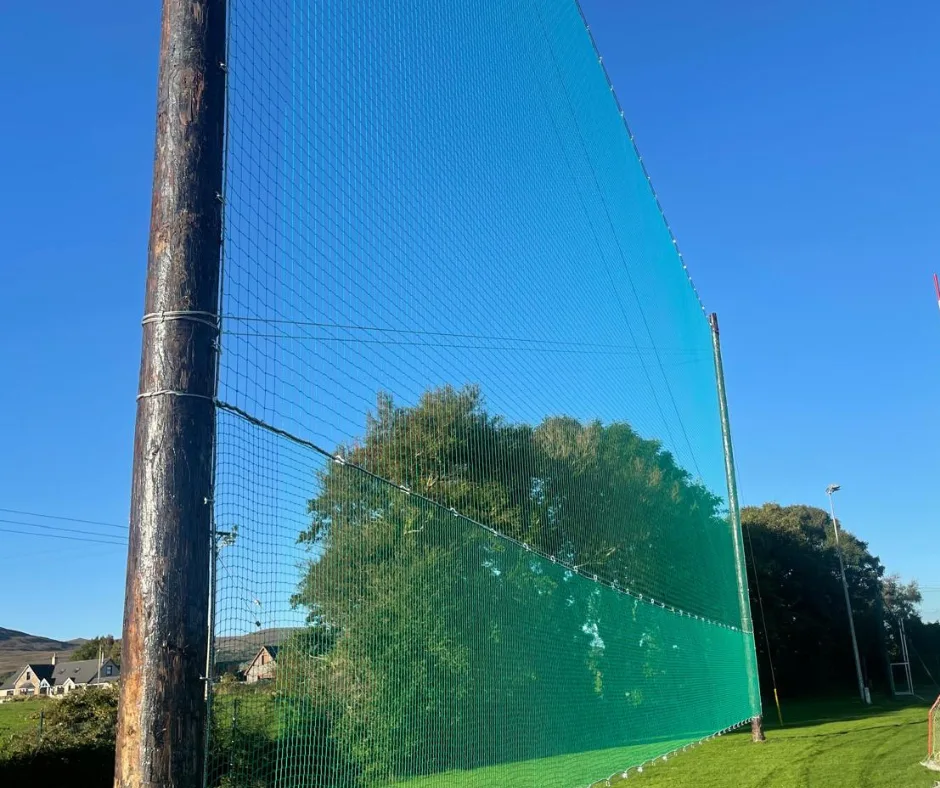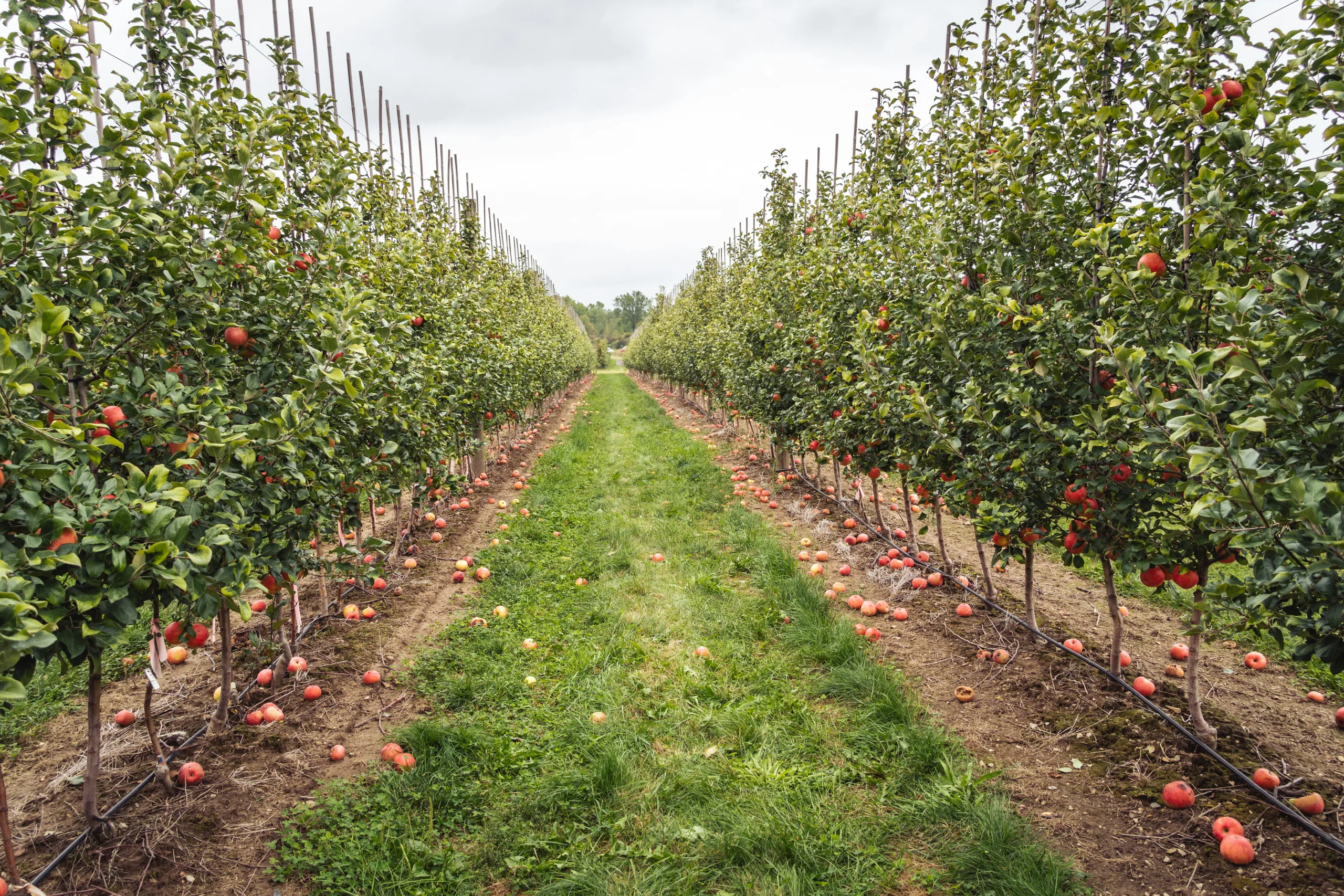1. Define Your Vision and Objectives for Your Sports Club Development Project
The first step in scoping your sports club development project is to define a clear vision and set specific objectives. Consider the following questions:
- What type of sports club do you want to create (e.g. Soccer, football, rugby, athletics)?
- What sports and activities will be offered?
- What demographic will the club serve (youth, adults, families)?
- What are the desired outcomes for the community (e.g., increasing participation in sports, promoting health, fostering community cohesion)?
Establishing a concise vision and objectives will guide your decision-making throughout the project and enhance your club’s appeal.
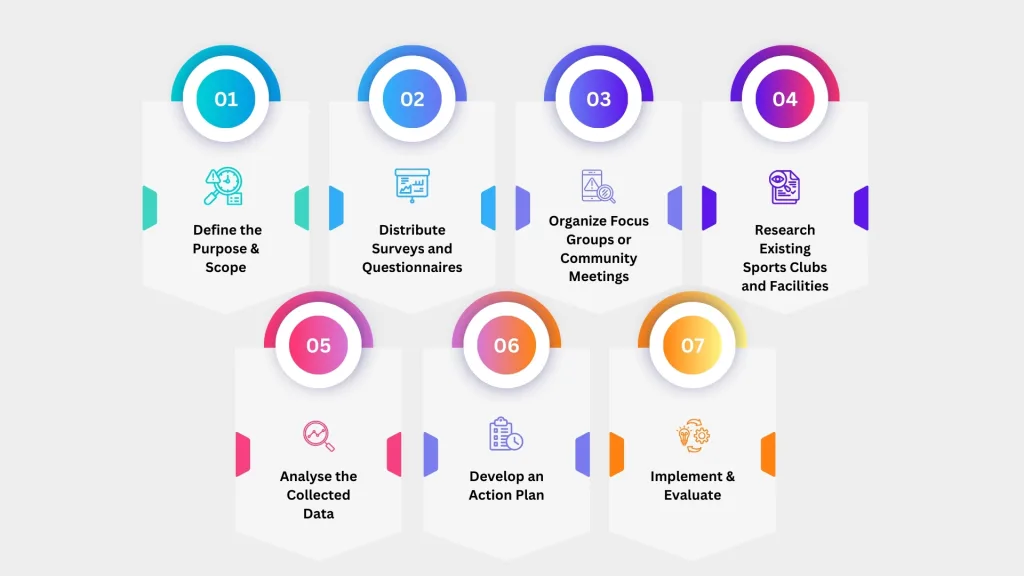
2. Conduct a Comprehensive Needs Assessment
A thorough needs assessment is vital to understanding the demands of your target community.
To gather valuable insights, consider:
- Distributing surveys and questionnaires to obtain input from potential club members and local residents.
- Organising focus groups or community meetings to discuss the project and gather feedback.
- Researching existing sports clubs and facilities in your area to identify gaps in services and opportunities for improvement.
By collecting relevant data, you can ensure that your project aligns with the community’s needs and interests.
3. Establish a Detailed Budget for Your Sports Club
Finance is a critical aspect of any development project. Create a comprehensive budget that includes:
- Land acquisition costs (if applicable)
- Construction and renovation expenses
- Equipment and facility maintenance costs
- Operational costs (staffing, utilities, insurance)
- Marketing and promotion expenses
Consider exploring funding options such as sponsorships, grants, and community fundraising events to support your project.
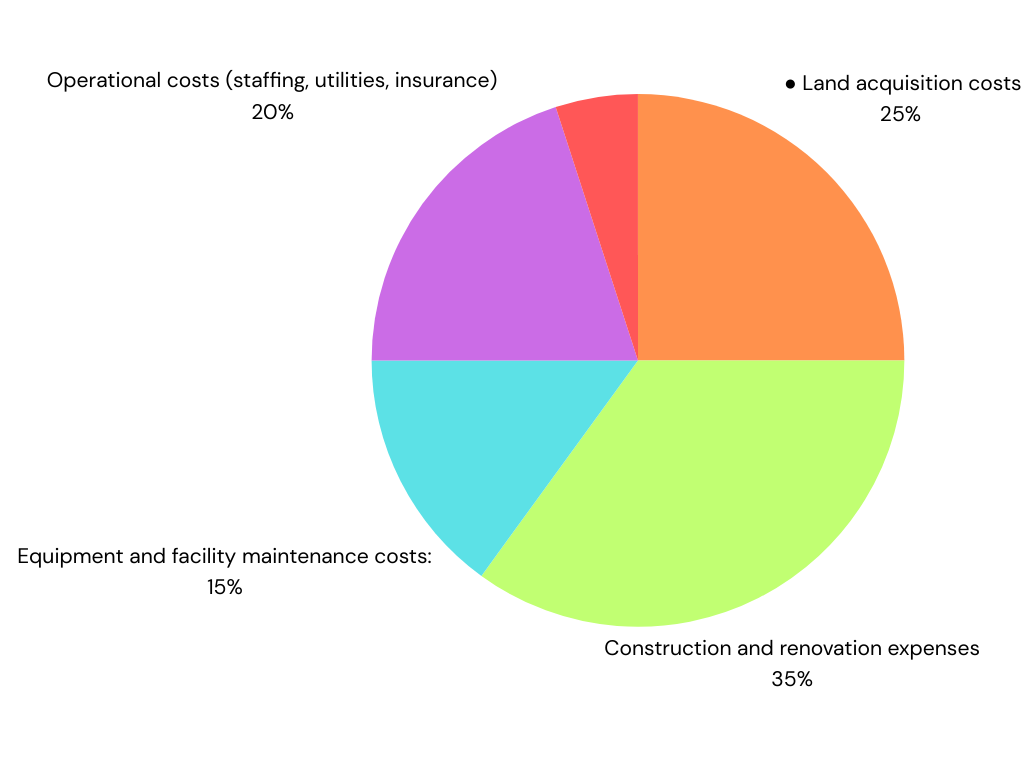
4. Select a Suitable Location for Your Sports Club
The location of your sports club can significantly impact its success. When choosing a site, consider:
- Accessibility: Ensure the location is easily accessible by public transport and has adequate parking facilities.
- Demographics: Research the population in the surrounding area to ensure it aligns with your target audience.
- Space Requirements: Assess the size of the land or facility to ensure it meets your needs for different sports and activities.
- Competition: Evaluate the proximity of existing sports clubs to avoid market saturation.
Conducting a detailed location analysis will help you identify the best site for your sports club.
5. Draw Up a Project Timeline
Creating a project timeline is essential for tracking progress and ensuring that milestones are met. Your timeline should include:
- Key phases of the project (planning, construction, opening, etc.)
- Important deadlines and milestones for each phase
- Tasks allocated to team members
- Buffer time for unforeseen delays
An organised timeline will keep your project on schedule and facilitate effective communication among stakeholders.
6. Engage Stakeholders Early in the Project
Involving stakeholders early in the project can help secure buy-in and foster collaboration. Stakeholders may include:
- Local government officials
- Community leaders
- Potential members and users of the sports club
- Sponsorship partners
- Sports organisations
Hold meetings and discussions to gather their input and address any concerns. Building strong relationships with stakeholders can also help garner support for your project.
7. Design the Sports Club Facility Strategically
With a clear vision, needs assessment, and stakeholder input, it’s time to design the sports club facility. Engage with architects and facility planners to create a design that supports your objectives while remaining functional and appealing. Consider incorporating:
- Versatile spaces for multiple sports
- Spectator seating
- Amenities such as changing rooms and refreshment areas
- Outdoor spaces for activities and events
A well-designed facility will enhance user experience and retention, making your sports club a desirable destination.
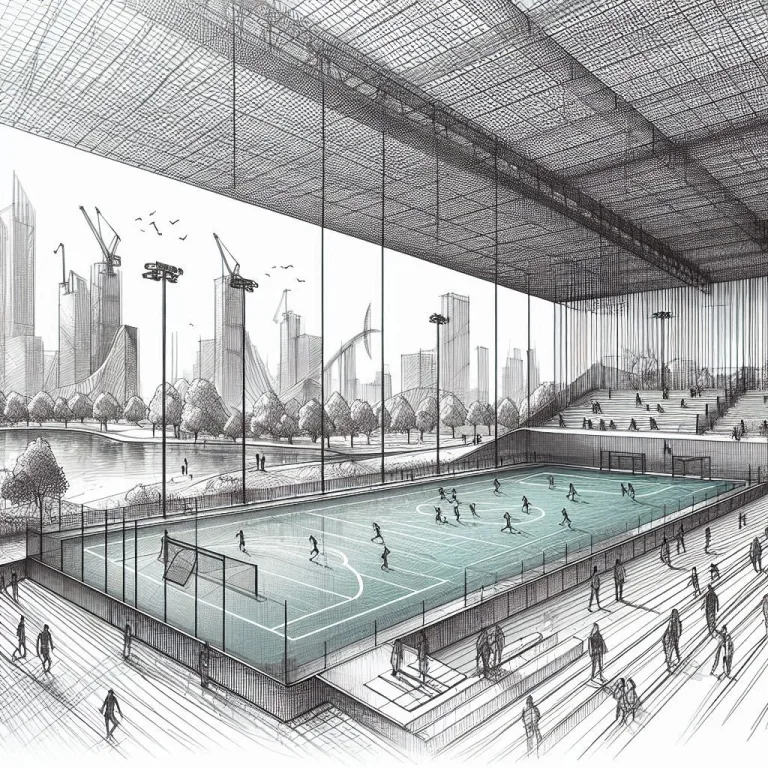
8. Plan for Sustainability in Your Sports Club Development
As you scope your sports club development project, consider incorporating sustainable practices into your planning and design. This may include:
- Using eco-friendly construction materials
- Implementing energy-efficient systems (lighting, heating, cooling)
- Incorporating green spaces and landscaping
- Developing water conservation strategies
A commitment to sustainability not only benefits the environment but can also attract members who value eco-conscious practices.
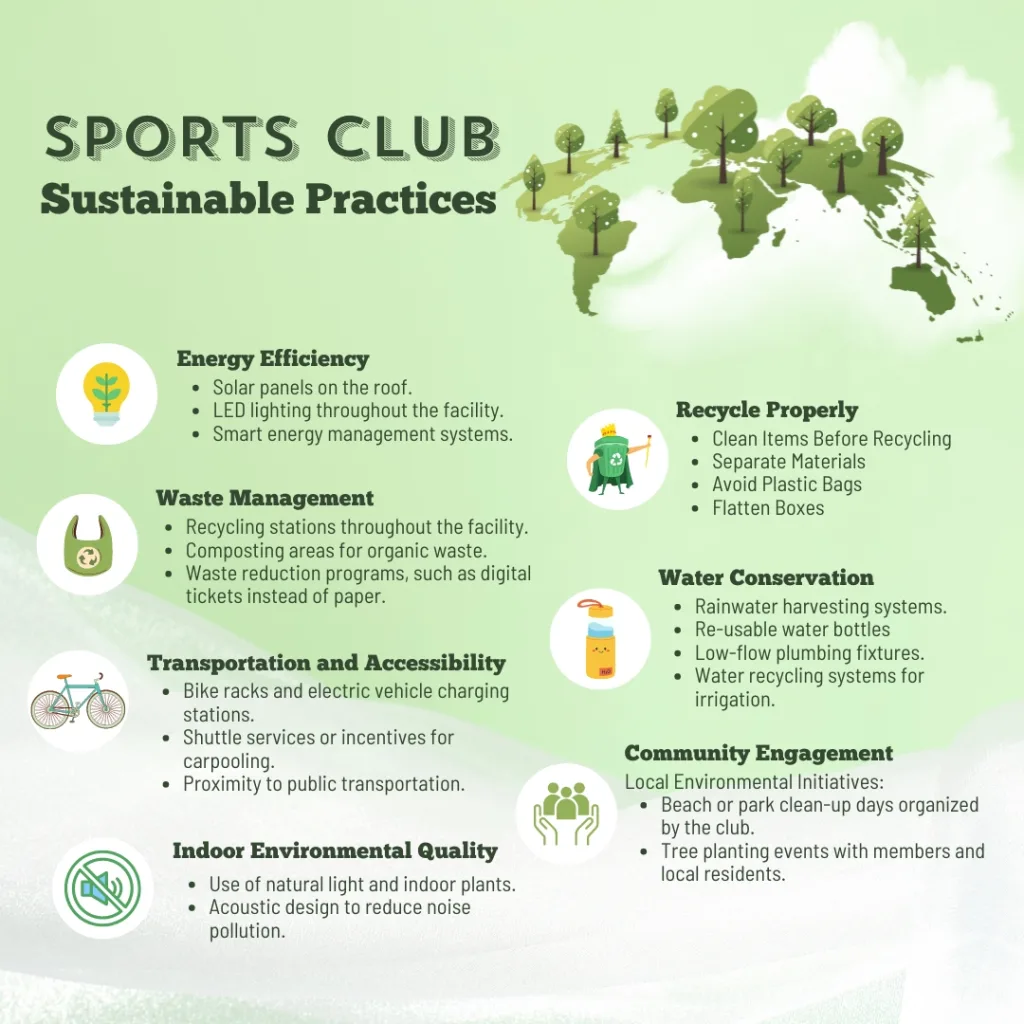
9. Create a Robust Marketing Strategy
Once your project is underway, start developing a marketing strategy to promote your sports club. Consider:
- Building a user-friendly website to share information and updates
- Utilising social media platforms to create buzz and engage with potential members
- Hosting community events and open days to showcase your facilities and programmes
- Offering introductory promotions or discounted memberships to attract new members
Effective marketing will ensure that your sports club reaches its target audience and cultivates a thriving community.
9. Create a Robust Marketing Strategy
To further assist you in your sports club development project, consider the following resources tailored for Irish clubs:
- Irish Sports Council: – Provides information on funding, policy papers, and support for sports development in Ireland.
- Sport Ireland’s Club Development Resource: Sports Ireland -Offers resources and guidelines specifically for developing clubs in Ireland.
- Local Sports Partnerships: Local Sports Partnerships – Find your local sports partnership for community engagement and support.
- Grants for Sports Development: Information on various grants available for sports projects and developments across Ireland
Conclusion
Scoping out your sports club development project involves careful planning and a commitment to understanding the needs and desires of your community. By defining your vision, conducting a needs assessment, establishing a budget, and engaging stakeholders, you can create a solid foundation for a successful sports club. Remember to consider sustainability and marketing strategies as integral parts of your planning process. With the right approach, your sports club can become a dynamic hub for sports and community engagement for years to come.

